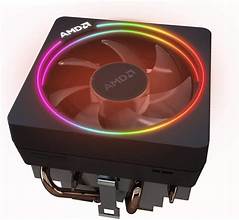Introduction
Cloud gaming, also known as game streaming or gaming-as-a-service, has gained popularity in recent years as an alternative to traditional gaming on consoles or PCs. It allows gamers to play high-end video games without the need for powerful hardware by streaming the game content from remote servers. While cloud gaming offers numerous advantages, it also comes with its share of disadvantages. In this article, we will explore both sides of the coin. In this article we discuss the advantages and disadvantages of cloud gaming.
Advantages of Cloud Gaming
- Accessibility: One of the most significant advantages of cloud gaming is accessibility. Gamers can play their favorite titles on various devices, including smartphones, tablets, smart TVs, and low-end PCs, as long as they have a stable internet connection. This eliminates the need for expensive gaming consoles or high-end gaming PCs.
- Cost-Efficiency: Cloud gaming services often follow a subscription-based model, allowing gamers to access a library of games for a fixed monthly fee. This is more cost-effective than purchasing individual game titles or investing in expensive hardware upgrades.
- No Downloads or Updates: With cloud gaming, there is no need to download or install large game files or updates. Games are instantly accessible, reducing the waiting time and storage requirements on your device.
- High-Quality Graphics: Cloud gaming services typically run games on powerful servers, delivering high-quality graphics and performance that may exceed what most individual gaming setups can achieve.
- Cross-Platform Play: Cloud gaming promotes cross-platform play, enabling gamers to connect and play with friends on different devices seamlessly.
- Lower Latency (in some cases): While latency can be a concern in cloud gaming, some services have improved to the point where it’s almost imperceptible, especially with a fast and stable internet connection.
Disadvantages of Cloud Gaming
- Internet Dependency: Cloud gaming is heavily reliant on a stable and high-speed internet connection. If your internet service is unreliable or slow, it can lead to lag, interruptions, or even make gaming unplayable.
- Latency: Latency, the delay between user input and the game’s response, remains a significant concern in cloud gaming. Gamers may experience input lag, which can negatively impact their performance, particularly in fast-paced games.
- Limited Game Library: Although cloud gaming services offer a growing selection of games, they may not have the entire library of titles available on traditional gaming platforms. Gamers might miss out on some exclusives or niche games.
- Quality Depends on Server Load: The quality of cloud gaming can vary depending on server load. During peak usage times, servers may become crowded, resulting in degraded performance for users.
- Data Usage: Cloud gaming consumes a substantial amount of data, which can be problematic for users with data caps or limited internet plans.
- Ownership and Licensing: When you subscribe to a cloud gaming service, you are essentially renting access to games, rather than owning them. If the service shuts down or your subscription ends, you may lose access to your game library.
Conclusion
Cloud gaming offers a convenient and cost-effective way to enjoy high-quality video games without the need for expensive hardware. However, it is not without its challenges, including internet dependency, latency issues, and potential limitations on game availability. The decision to embrace cloud gaming should consider your individual gaming preferences, internet quality, and willingness to adapt to the evolving landscape of gaming services. As technology continues to improve, cloud gaming may become an even more compelling option for gamers in the future.




